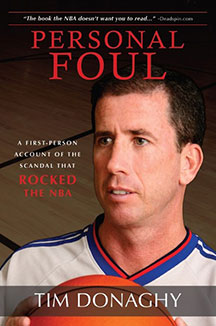Jess McIntosh of Signal Boost, came back on The Drive yesterday. It was her first time back on the show since Steve Jaxon had her on The Drive last July, when the show was broadcasting from the Democratic National Convention in Philadelphia. She told about how Signal Boost got started, as an email list to organize progressive resistance to the new administration. For more information about Signal Boost including how to sign up, visit Jess McIntosh’s Twitter page, @jess_mc.
KSRO intro, then Steve Jaxon:
You bet your boots, Bob! It’s 3:22 on your Thursday Drive.
Well, I have to admit after five, six days, six days, I guess, and having to do this for a living, and watch MSNBC and CNN and everything else and all over the Internet, I am trumped out. I need a break, as many of you do, but we’re not going to take one yet!
It’s so great to talk to our friend, who was with us in Philly last July, when we broadcast from the convention. She’s been on the show many times. Jess McIntosh is here. Hi Jess!
Jess McIntosh:
I could use a break too.

Jess McIntosh
Steve Jaxon:
I know. We all can, I don’t know. I’m going to watch nothing but movies all weekend.
Jess McIntosh:
Yeah, I’m going to catch up on my Oscar movies and I’m really excited about that.
SJ:
So it’s great talking to you again, it was great meeting you and being with you in Philly. Now you are a co-founder of something new called Signal Boost, talk about that.
Jess McIntosh:
Yes, so when I was on the campaign I had a partner named Zerlina Maxwell and the two of us ran what became, like, a pretty popular little email program where we told a community of people who wanted to know what the campaign was up to, moments that they ought to engage, like a debate or a big speech or something crazy that Trump had done. And we also told them all of the amazing stuff that the rest of their group was doing. So there are lots of activist pockets popping up all over the place and what we want to do is connect them to each other and make sure that we can amplify the good work being done and get it as big as possible.
So the election obviously didn’t turn out the way we wanted it to, and we think that that model might be more important than ever. So we launched Signal Boost. It’s an activist newsletter, it’s a feminist newsletter, it’s a progressive newsletter. If you head on over to my Twitter feed, which is @jess_mc, you can sign right up for it. We’ll tell you all the cool things that are going on around the country and if you send us the cool stuff you’re doing, we’ll make sure it gets out to the larger group. So that’s how it works.
“…it really was a pretty joyful protest. A friend of mine sent me an email with her photos of the day and the subject line was, “We are a gentle angry people.” I thought that was perfect.”
SJ:
Is there a Signal Boost dot org website yet?
JM:
Not yet. We’re building it while we’re flying it. We wanted to make sure that we were getting it out before the Women’s March. But it lives on my Twitter feed and also on Zerlina’s. She’s @ZerlinaMaxwell and probably you’ve got friends on it already. It’s been going pretty big.
But everyone’s asking, “what do we do now?” and we wanted to help people answer that question.
SJ:
Right on. Jess is a former Hillary Clinton campaign spokesperson. Before that she was with Emily’s List. We had them on, on Monday. Let’s talk about the women’s movement at this point under Trump, where does it go from here? What women are doing, who oppose Trump and his agenda and what are they doing to fight it?
JM:
Well, it turns out that women seem to be leading the progressive agenda. I was at the Women’s March in DC. It was so inspiring. It was the first good day since November. It was the first day of the first day of the Resistance, and boy, it was a solid one. And I love the way it started. Like, I think people don’t know. The way these marches usually start, is an organization says, “we’re going to march for health care,” or “we’re going to march for reproductive rights,” and then a major union or a major women’s organization or the NAACP, somebody says, “we’ve got this, we’re going to pick a date, we’re going to pick a time, we’re going to do the permits, we’re going to invite all our members, and that’s how it happens.
This happened backwards, completely. It was a grandmother in Hawaii who said, “well, to heck with that (Trump’s win), I think we should march on Washington.” She emailed 40 of her friends that night to say, “who’s with me?” That email was passed around so many times and turned into a Facebook group that by morning, you had hundreds of thousands of women saying, “yes, I’m in, I’m going.”
SJ:
Wow!
JM:
Of course, there was nothing for them to go to, no one had done the permits, there was no march. There was just an organic uprising. So some wonderful women from the Latina field, from Black Lives Matter, from pretty much every aspect of the Progressive movement, got their arms around it and put some real organizing muscle behind it and turned it into the most successful global protest ever. Like, this is the largest number of people protesting a thing in history. So there’s not much more to say about the success of that and how seriously women are taking the next four years.
And even with those numbers, somewhere over four million across the country, not a single arrest, which I think is the single biggest example or reason to put women in charge of everything ever.
SJ:
I agree. I couldn’t agree more. Even in the small town I live in, it’s not too small, but its… there were approximately eight thousand people on Saturday, men and women, downtown and it was, yeah, and the whole Washington thing was excellent. And we didn’t hear, across the world, because it was across the world, we didn’t hear of any problems, any arrests.
JM:
No, it really was a pretty joyful protest. A friend of mine sent me an email with her photos of the day and the subject line was, “We are a gentle angry people.” I thought that was perfect. It was women and men too and I loved seeing so many men who were willing to march under the banner of women and for women. But I thought it was important that we didn’t pick a single issue.
This wasn’t against Trump’s xenophobia, it wasn’t against, you know, reproductive rights or Rove v. Wade. This was a pro-choice march, it was a pro-immigrant march, but it was a march that celebrated the intersection of all these issues. It says, your liberation is our liberation and we can’t do this alone. And I think that that is so important going forward, as we’re the opposition party, as we’re the party in the minority. It is really important that we don’t give in to that, you know, “let’s not talk about immigration reform because we want to talk about health care right now.” The truth is that we can talk about both.
SJ:
Sure!
JM:
Obviously health care is a special issue for immigrants and for undocumented immigrants. Obviously Latinas within the health care system are some of the biggest numbers of health care workers. There are ways to do this that doesn’t break it down into an either-or equation. You know, that lets us all move ahead together and really truly exposes how narrow-minded the Trump agenda, the conservative Republican agenda is right now.
SJ:
Well, we’ve seen that in just five days, obviously.
JM:
Whiplash! Ugh!
SJ:
More to come, yeah. So, what happens next? I mean, I saw something today about a big march planned on April 15th, on tax day, to call on Trump to release his taxes. But what else is coming up?
JM:
Yup. I’ve also heard of a march of scientists on Washington…
SJ:
Yeah, I saw that today too.
JM:
… that’s being put together, you can sign up on Facebook for that now, they don’t have a date yet but that seems to be growing in numbers.
You know, the thing that… one of the things that I took away was how great it was to see other countries putting in and even though I’ve spend my life and my career in progressive politics, I don’t tend to march when it doesn’t immediately affect my community. I live in New York City so, you know, lots of things affect my friends and my neighbors and they’re a really diverse group of people. But I’m going to do a better job this year and under this administration of getting out even when, you know, we’re talking about human rights violations in another continent. I think that’s important that we all recognize and be the best allies we can possibly be, even when it’s not, you know, an immediately local issue.
But I think what’s next is I’m hearing a lot about running for office and I think that that’s really important.
SJ
And we talked with Emily’s list on Monday about that. Who was with us Mike? I can’t remember the name. Marcy was with us.
JM:
I love Marcy.
SJ:
She mentioned that after the whole march and the gatherings on Saturday, they had over 500 women over at Emily’s List to learn about how and what it takes to run for office and such.
JM:
Yeah, well this is where Democrats have really fallen down in the past. We’re really good at mobilizing for a presidential election. We’re really bad at keeping that momentum going for local elections, for mid-term elections, and we have to rectify that if we’re ever going to build a majority that is sustainable beyond, you know, one super inspirational president or one four-year term.
So I think what we need to do right now is focus on local elections and focus on women running. I’m not saying that every woman needs to get out there and run but there are a lot of women who have thought about running and just not taken that step. Emily’s List can certainly help you do that. It is not rocket science. Look at some of the guys serving in office right now. You know you are as smart as they are. You know you can do as well. Go ahead and do it.
But the other thing is, and this is for men too, what women can you help? If you live in a reliably Blue area, you‘re not concerned about your state legislature… California’s got it pretty good, although it could be better, especially in terms of gender equity on your city councils and your state legislature, but if you’re feeling good, you know, most people have connections to another place in the country. Maybe you grew up somewhere else or you went to college somewhere else, or, you know, your spouse’s family is from another place. Is that place as reliably blue? If not, look at some of the local elections there. Is there a woman there you can throw twenty buck to every couple of months?
When you’re talking about state legislative races, those small dollar donations can make a huge impact, whereas, in a presidential, they’re important but, you know, they’re getting money from lots and lots and lots of places. If you become a $20-a-month donor to a state senate race, you could make the difference, yourself.
SJ:
Exactly.
Jess McIntosh:
So think about, you know, where in the country you could focus on and is there a candidate, and there are resources all over the web, not just Emily’s list, although Emily’s list is a great one, that can tell you who’s running and what kind of help they need.
So I think if everybody, right now, takes a look at these local elections, the big reason why they’re so important is because the people we elect in 2018 to our state legislatures will be the ones who draw the Congressional districts in 2020. Those districts will decide who has power in Congress for the next decade.
So some states like California do a really good job of equitably defining Congressional districts by geography. You don’t play any… you don’t have any funny business. You have an independent board that does it. Most states don’t work that way. Most states let their partisan state legislature determine whose Congressional districts are made up of which voters, which is how you get some really crazily shaped Congressional districts. And a lot of places, like North Carolina, say, has such a hard time having their urban, progressive non-white populations have voices in Congress. They have the numbers but these districts are unfairly drawn to disenfranchise people and to make sure that the Republicans they have in office are the most extreme possible because they’re catering to the most extreme base.
So this is one of the fundamental problems of our democracy that we have to fix immediately. And the best way to do it is to make sure that our state legislatures, the people who decide who’s going to – the people who decide these lines, are truly representative. And that means we have to focus on getting as many progressives in there as possible in 2018. So that’s a “right now” sustainable, do it for the next two years.
SJ:
What you just said explains the only reason that crazy Louis Ghomert got in in Texas, to Congress, and things like that.
Jess McIntosh:
Exactly.
SJ:
Give us the info again on Signal Boost.
Jess McIntosh:
Head on over to my Twitter page. It is @jess_mc. And there’s a tweet right up there, you can sign right up. We send out, we’re not going to spam you. We send out a newsletter whenever there’s a moment that really needs it, looks like maybe once or twice a week.
Um, and then it’s a two-way street. So I’ll email you, you can email me back. You tell me what’s going on in your community and we’ll put it out to our list of thousands of passionate progressives and we’ll make sure that people know about it we can help boost your funding or your volunteers or whatever it is, whatever it is you’re looking for.
Because, we have the numbers. There are a lot of people with a lot of energy doing a lot of great work right now. And we want to make sure that work is sung and heard as big as possible.
SJ:
Right on. Jess McIntosh, our good friend. She’s been with us many times and was with us face to face…
Jess McIntosh:
In happier times!
SJ:
… in Philadelphia, yeah, at the Democratic convention. Always a pleasure, my friend, let’s talk soon.
Jess McIntosh:
Thanks.
SJ:
OK, take care. It’s Signal Boost, go to @jess_mc on Twitter and find out more about that. She was a spokeswoman for the Clinton campaign in 2016. Last time she was on with us was as a spokesman for the Clinton campaign. And she used to work for Emily’s list. There you go.


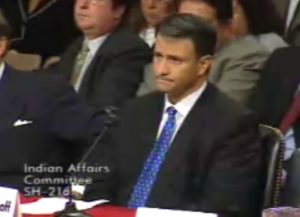
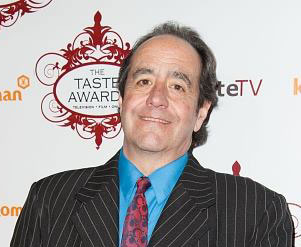



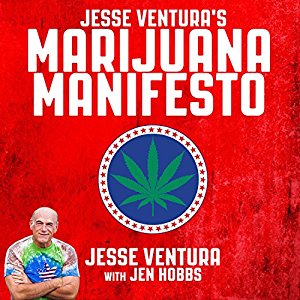 Steve Jaxon: All right! He’s been with us before, it’s always great to talk to our first guest, he’s an American former professional wrestler, actor, political commentator, author, naval veteran and he was the thirty-eighth governor of the state of Massa… sorry, Jesse, The Great State of Minnesota, Jesse Ventura is back with us. How are ya doin’, man?
Steve Jaxon: All right! He’s been with us before, it’s always great to talk to our first guest, he’s an American former professional wrestler, actor, political commentator, author, naval veteran and he was the thirty-eighth governor of the state of Massa… sorry, Jesse, The Great State of Minnesota, Jesse Ventura is back with us. How are ya doin’, man?
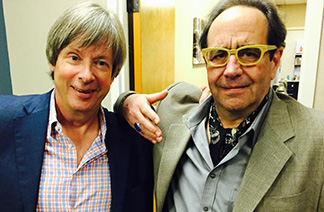
 Steve Jaxon: I’ve wanted to talk to this guy for many many years. The great Dave Barry, who was in the studio with us not too long ago, will be back in town on Monday, as part of the Copperfield’s Books series, the author’s series, he’ll be at the Montgomery Village Copperfield’s. But tomorrow night at the Central Library, Copperfield’s is presenting one of my favorite authors of all time. I have read all but one of his books and I plan to, spend time this weekend not watching movies or looking at my phone and I’m going to read the new one, Razor Girl. I can’t wait. He is the author of 13 novels, including Bad Monkey, Star Island, Nature Girl, Skinny Dip, one of my favorites, Sick Puppy, oh I love that one, Basket Case, I think was one of the first Carl Hiaasen books I read, but (I’m) just a huge fan and it’s an honor to have him on the show, Carl Hiaasen. How are you sir?
Steve Jaxon: I’ve wanted to talk to this guy for many many years. The great Dave Barry, who was in the studio with us not too long ago, will be back in town on Monday, as part of the Copperfield’s Books series, the author’s series, he’ll be at the Montgomery Village Copperfield’s. But tomorrow night at the Central Library, Copperfield’s is presenting one of my favorite authors of all time. I have read all but one of his books and I plan to, spend time this weekend not watching movies or looking at my phone and I’m going to read the new one, Razor Girl. I can’t wait. He is the author of 13 novels, including Bad Monkey, Star Island, Nature Girl, Skinny Dip, one of my favorites, Sick Puppy, oh I love that one, Basket Case, I think was one of the first Carl Hiaasen books I read, but (I’m) just a huge fan and it’s an honor to have him on the show, Carl Hiaasen. How are you sir? CH: Yeah, I was, I won’t tell you when it was, yeah, I’ll tell you, it was ’76 when I started, so I kind of grew up in the newsroom and it does get in your blood a little bit, what’s left of the newsrooms in this country, sadly. But, you know, I do the one column a week in the Herald and the rest of the time I work on these disturbing novels.
CH: Yeah, I was, I won’t tell you when it was, yeah, I’ll tell you, it was ’76 when I started, so I kind of grew up in the newsroom and it does get in your blood a little bit, what’s left of the newsrooms in this country, sadly. But, you know, I do the one column a week in the Herald and the rest of the time I work on these disturbing novels.
 Stephanie Miller and Will Durst visit with Steve Jaxon on Radio Row on Day 3 of the DNC. She mentions that she will be doing a live Sexy Liberal show at the Herbst Theater in San Francisco on Aug. 6. She will also do a show on Monday November 7, the night before the Presidential election, which will go out live via satellite into movie theaters around the country. She describes the convention as “summer camp for politcal nerds.”
Stephanie Miller and Will Durst visit with Steve Jaxon on Radio Row on Day 3 of the DNC. She mentions that she will be doing a live Sexy Liberal show at the Herbst Theater in San Francisco on Aug. 6. She will also do a show on Monday November 7, the night before the Presidential election, which will go out live via satellite into movie theaters around the country. She describes the convention as “summer camp for politcal nerds.” Eric Boehlert of Media Matters America joined Steve Jaxon on Day 3 of the DNC, which only feels like Day 7 to Steve. He recaps the story of Media Matters, a liberal media watchdog that monitors and reports on right wing media. He breaks down the questions about Donald Trump’s taxes, his suspicious Russian ties and whether he will agree to debate with Hillary Clinton. They discuss whether Trump is really in it to win and whether he intends to serve at all if elected.
Eric Boehlert of Media Matters America joined Steve Jaxon on Day 3 of the DNC, which only feels like Day 7 to Steve. He recaps the story of Media Matters, a liberal media watchdog that monitors and reports on right wing media. He breaks down the questions about Donald Trump’s taxes, his suspicious Russian ties and whether he will agree to debate with Hillary Clinton. They discuss whether Trump is really in it to win and whether he intends to serve at all if elected. Steve Jaxon visits with Krystal Ball, former MSNBC commentator and now a senior fellow at The New Leaders Council. She describes their 5-month intensive leadership training for young activists, office holders and candidates, who work to find concrete solutions and the best policy ideas. Find more info at
Steve Jaxon visits with Krystal Ball, former MSNBC commentator and now a senior fellow at The New Leaders Council. She describes their 5-month intensive leadership training for young activists, office holders and candidates, who work to find concrete solutions and the best policy ideas. Find more info at 